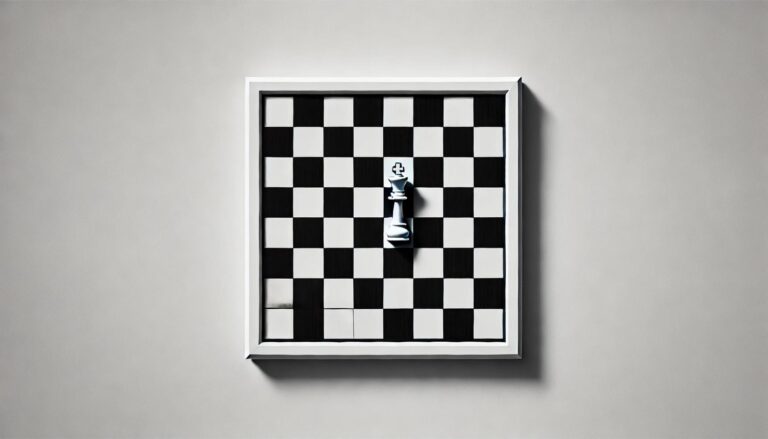Introduction to Vedic Maths
Vedic Maths is a system of mathematics that originated in India thousands of years ago. It is based on the ancient Vedic scriptures and was revived in the 20th century by Bharati Krishna Tirthaji Maharaj. Vedic Maths is a unique and efficient way of performing mathematical calculations, and its principles can be applied to all areas of math, including chess.
Chess is a game that requires strong analytical and strategic thinking skills. It involves making quick and accurate calculations, evaluating multiple moves and anticipating your opponent´s next move. Vedic Maths can be a valuable tool for chess players to improve their skills and enhance their overall performance. Here are some of the benefits of Vedic Maths for chess players:
One of the key elements in chess is the ability to make quick and accurate calculations. Vedic Maths teaches mental and visual techniques that allow you to perform calculations faster and with better accuracy. This can be especially beneficial for timed chess games, where every second counts. With Vedic Maths, you can train your mind to perform calculations quickly and without making errors, giving you an edge over your opponent.
Visualization is a crucial skill in chess, as players need to anticipate their opponent´s next moves and plan several moves ahead. Vedic Maths teaches visualization techniques that can help chess players to visualize the chessboard, see patterns, and anticipate moves more effectively. This skill can be particularly useful in complex chess situations, where multiple moves need to be evaluated simultaneously.
Vedic Maths is based on the principles of creativity and problem-solving. It encourages students to think outside the box and come up with alternative ways to solve a problem. This can be extremely beneficial for chess players, as it allows them to think creatively and find new and innovative methods to win a game. In chess, there is not always a single “correct” move, and Vedic Maths can help players to think of unconventional moves that can surprise and outwit their opponents.
Vedic Maths also emphasizes the use of memory techniques, such as visualization and association, to retain and recall large amounts of information quickly. This can be particularly useful for chess players, as they need to remember previous moves, openings, and strategies in a game. With Vedic Maths, you can train your mind to retain and recall information more efficiently, which can ultimately lead to better chess performance.
Now that we have established the benefits of Vedic Maths for chess players, let´s explore how it can be applied in actual games. Here are some ways in which Vedic Maths principles can be used in chess:
One of the fundamental aspects of Vedic Maths is its efficient multiplication and division methods. These techniques use visual patterns and can help players to perform calculations mentally and with great speed. In chess, arithmetic calculations are required for calculating material advantages, evaluating possible moves, and determining the outcome of positions. By applying Vedic Maths multiplication and division techniques, players can perform these calculations faster, leaving more time to focus on other aspects of the game.
Subtraction and addition are vital operations in chess, as they are used to count pieces and evaluate the value of a position. In Vedic Maths, there are specific techniques for performing these operations mentally, without the use of pen and paper. These techniques can be applied in chess to help players quickly and accurately count pieces and evaluate positions, giving them an advantage over their opponent.
Chess players often need to perform calculations involving square roots and cubes, especially when evaluating potential moves or analyzing complex positions. Vedic Maths has special techniques for finding the square root and cube of a number mentally. These techniques can be applied in chess to perform calculations faster and more accurately, giving players an edge in the game.
Vedic Maths is built on the concept of number patterns and their relationship to each other. This knowledge can be applied in chess to recognize patterns on the chessboard, such as pawn structures, piece formations, and potential mate patterns. Identifying and understanding these patterns can help players analyze positions more efficiently and make better strategic decisions.
To fully reap the benefits of Vedic Maths in chess, it is essential to practice the techniques regularly. Here are some Vedic Maths exercises that chess players can try:
Section 4: Conclusion
In conclusion, Vedic Maths can be a valuable complement to chess skills. Its principles of speed, accuracy, visualization, creativity, and memory improvement can enhance a player´s overall performance in the game. By applying Vedic Maths techniques, chess players can perform calculations faster, make better strategic decisions, and outwit their opponents. Regular practice of Vedic Maths exercises can help players to sharpen their mathematical skills and become stronger chess players. So, whether you are a beginner or an advanced chess player, consider incorporating Vedic Maths into your training routine and see the difference it can make in your game.

